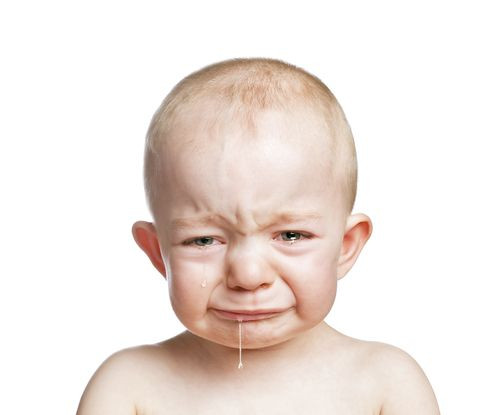Mother's Response To Baby Cries Leads To Emotionally Healthier Children: When Crying Counts

How mothers respond to their babies is a foundational part of their development as they grow, but it turns out a mother's childhood experiences could hinder their health. Researchers from the University of North Carolina at Greensboro studied the delicate relationship between mothers and their crying babies and published their study in the journal Child Development.
"Responding sensitively to infant crying is a difficult yet important task," the study’s lead research Esther M. Leerkes, professor of human development and family studies at the University of North Carolina at Greensboro, said in a press release. "Some mothers may need help controlling their own distress and interpreting babies' crying as an attempt to communicate need or discomfort. Home visiting programs or parenting classes that help parents become more aware of stress and teach ways to reduce it, as well as individualized parent education efforts, may help build these skills."
Researchers examined the responses of 259 first-time mothers from a wide range of racial and socioeconomic background and found if a mother, regardless of their background, had experienced depression or difficulty controlling their emotions, they responded incorrectly to videos of four different babies’ crying. Instead of prioritizing the needs of the baby in the video, the mothers with haunting childhoods focused on themselves, and their stress levels were tested much higher based on their sweat and heart rate. The mothers who were mother-oriented and focused on themselves were the ones who believed the videotaped babies’ crying was a nuisance and they were manipulatively crying to get what they wanted.
"This adds to evidence supporting the universality of the processes that promote mothers' sensitivity to distress," Leerkes said. The way mothers thought, felt, and behaved was recorded in questionnaires and interviewed on their childhood experiences with their own parents or caregivers and reflected on how the experiences reflected them overtime.
A recent study in the journal Archives of Disease in Childhood studied 300 pregnant women who had a history of anxiety disorder and found they were more likely to let their babies cry longer than otherwise mentally healthy women. The researchers studied and interviewed the women with their babies until the child was 16 months old. They also believe a baby will cry excessively as a result of the mother’s production of stress hormones during her pregnancy that could’ve leaked into the placenta and affected the child’s brain development.
Source: Leerkes EM. Child Development. 2014.



























